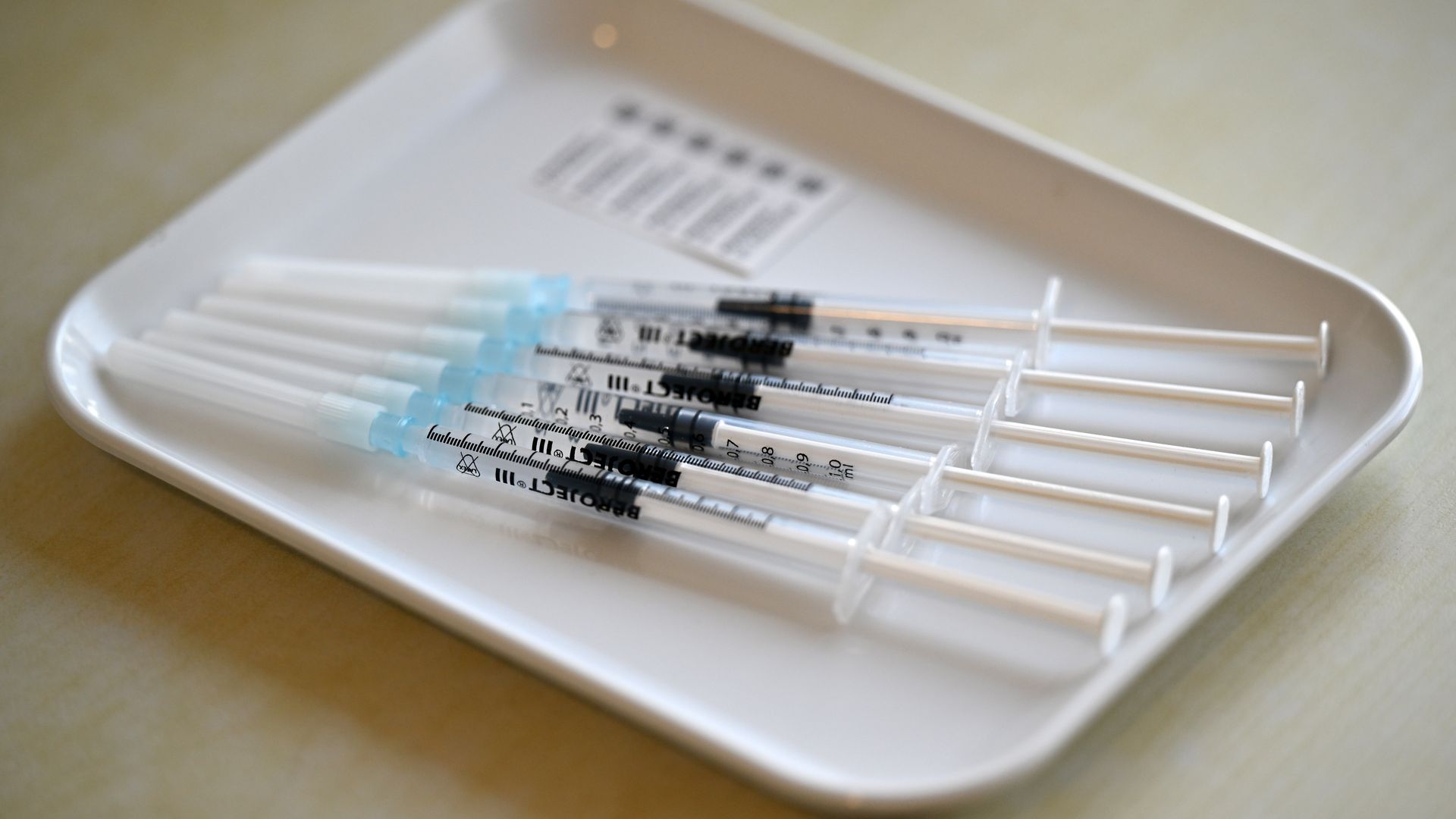What to know about monkeypox in D.C.
Add Axios as your preferred source to
see more of our stories on Google.

Photo: Martin Schutt/dpa-Zentralbild/dpa via Getty Image
D.C. has seen 21 cases of monkeypox, putting it among the top five jurisdictions with cases.
Why it matters: Vaccines are in demand yet difficult to come by. The city has already exhausted its supply.
What’s happening: The federal government says it will offer nearly 300,000 vaccines in the coming weeks, yet D.C. isn’t sure how many shots are coming its way.
- The District won’t unlock more appointments until it has more supply.
State of play: The majority of D.C. cases are occurring among men who have sex with men, says DC Health interim chief science officer Kimberly Sommers.
- One of the main ways it spreads is through extended periods of face-to-face or intimate physical contact and, in particular, direct contact with sores.
- Sommers says the CDC is looking into whether monkeypox is spreading through semen or through vaginal fluid, which would be unprecedented.
Given limited vaccines, the city says they have to be prioritized for the highest-risk groups. That includes:
- Men who have had sex with men and have had multiple or anonymous partners in the last two weeks.
- Transwomen or nonbinary people assigned male at birth who have sex with men.
- Sex workers
- People who work in places where sex occurs, such as saunas or bathhouses.
The big picture: There have been more than 350 cases in the U.S., per CDC data. No state has seen triple-digit cases.
Worth noting: Officials have wrestled with how to frame public messaging amid concern that it could contribute to further stigma and falsely imply that monkeypox is limited to being spread among gay men, the Washington Post reports.
- Sommers says DC Health does not want to stigmatize a group that is already stigmatized, yet wants to ensure high-risk groups learn about vaccines.
What they’re saying: “[W]e have to protect this community,” Sommers adds.
- And from a provider perspective, there is high demand for broader access to vaccines and screening among patients who are at higher risk, says Sarah Henn, chief health officer at the Whitman Walker Clinic.
The bottom line: Monkeypox has not been declared a national emergency, and the risk to the general population remains low, Sommer says. People should know what the symptoms of monkeypox are, including what the rash looks like.
- And anyone experiencing symptoms should contact their healthcare provider immediately.
- If you do have monkeypox, you should isolate until the lesions are fully healed, which can take between 2-4 weeks.
